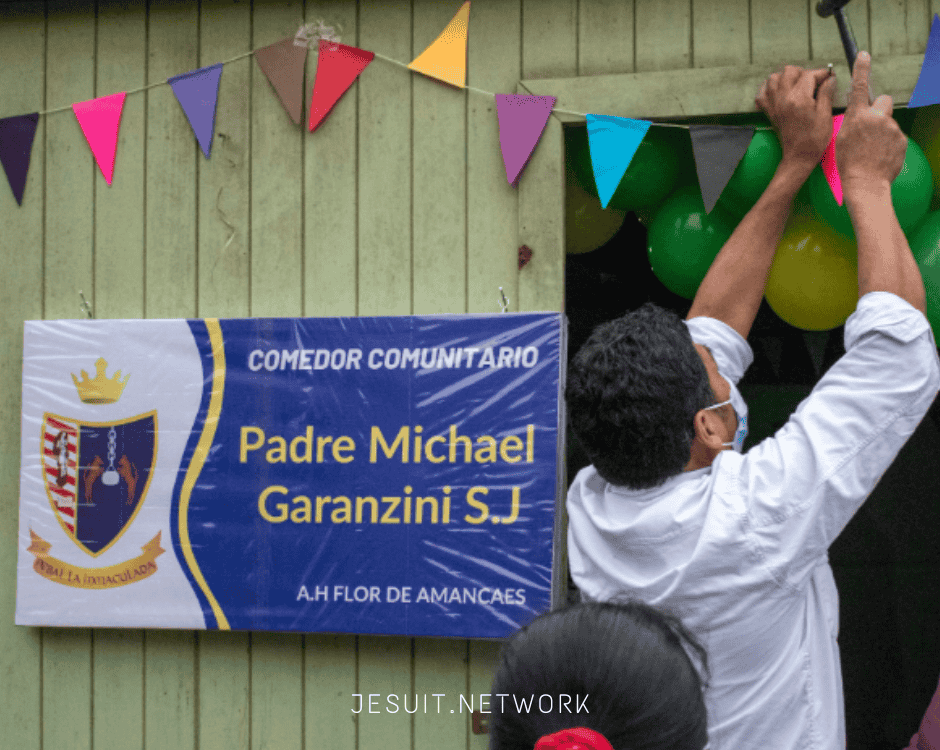This website uses cookies so that we can provide you with the best user experience possible. Cookie information is stored in your browser and performs functions such as recognising you when you return to our website and helping our team to understand which sections of the website you find most interesting and useful.
Reflections from "Justice in the Global Economy"
“Justice in the global economy” is the title of a report recently published by Promotio Iustitiae and promoted by Fr. Patxi Alvarez SJ, Secretary for Social Justice and Ecology of the General Curia of the Society of Jesus and Fr. Michael Garanzini, Secretary for Higher Education. It has been developed by a group of 7 Jesuits and lay experts from all conferences of the Society of Jesus, and has received the cooperation of two dozen experts from the fields of economics and social sciences.
The report was motivated by the many strong messages of Pope Francis encouraging us again and again to fight an “economy that kills,” to give up “the absolute autonomy of markets and financial speculation,” and to fight “against the structural causes of inequality, which are the root of social ills.”
The report begins by describing the five key challenges we face today.
1) The challenge of extreme poverty: Although the rate of extreme poverty in the world has declined from 44% in 1981 to 12.7% in 2012, economic growth seems to be decreasing in the long term, so it will be necessary to combat inequality if we are support the 800 million people still living in extreme poverty.
2) The social wound of inequality: Increasing inequality, both within nations and across the global community, is partly explained by the fact that those with substantial wealth have advantages in accessing and influencing the political system and its leaders, being able to promote policies that benefit themselves, leaving the poor to suffer the consequences.
3) The risks of modern-day financialization: Financialization offers new possibilities for manipulation and misuse of the instruments involved. Governments, eager to attract capital, have frequently engaged in deregulation of financial markets, diminishing their ability to protect their citizens.
4) The injustice of violence: Deepening income inequality threatens to bring political instability, violence and conflict. The privileged use their power to further increase inequality and states lose their ability to dampen the impacts of transnational corporations and speculative financial capital.
5) The unattended fragility of our common home: The rate of extraction of natural resources cannot be sustained. If consumption continues at the current pace, we will face severe menaces to both ecological stability and human welfare.
After listing these five key challenges we are presented with a new world vision:
This new vision would claim a distributive justice so that the basic needs of everyone are met, at least to the level required by their human dignity, through the development of effective institutions of global governance to ensure the common good, when national communities are unable or unwilling to do so.
Strong involvement of civil society is essential, through networking of organizations and NGOs, to prevent states from falling under the control of the small number of elites with economic and financial power.
The involvement of the institutions associated with the Jesuits is also necessary through both services that directly benefit the poor or the environment and through advocacy.
Our response to poverty, inequality and environmental degradation will be more effective if we work through networking. The 35th General Congregation of the Society of Jesus insisted that the promotion of justice calls for a strong collaboration between the Jesuits and many other people and institutions, and stated that this collaboration was essential to pursuing the Jesuit mission.
The report then concludes with a series of recommendations to improve the lives of the poor, such as:
- The promotion of public policies that redistribute wealth wary of the so-called “trickle-down effect” of markets.
- The enforcement of laws that protect the environment and foster good governance of natural and mineral resources.
- The call for stronger regulation of economic and financial markets.
- The implementation of policies that reduce the capture of states by lobbying elites and the prohibition of “revolving doors”.
- The promotion of policies that foster the creation of decent jobs.
- The commitment of advanced nations with the 0.7% of their GDP for official development aid.
- The promotion of involvement of additional actors in civil society.
- The call for stronger international regulation of financial and economic markets.
- The urgent implementation of more just trade treaties among states and multinationals.
- The urgent Regulation of tax havens in order to effectively tax multinationals.
And finally it concludes with recommendations to the Ignatian family such as:
- A direct engagement with the poor and their causes
- Transforming our institutions into instruments of economic justice.
- The creation of a research network for political change.
- Working as a network of Jesuit institutions to strongly influence the status quo.
The original document by Promotio Iustitiae “Justice in the global economy” can be found in English, Spanish, French and Italian.






1 Comment
[…] http://jesuitnetworking.org/reflections-from-justice-in-the-global-economy/ […]